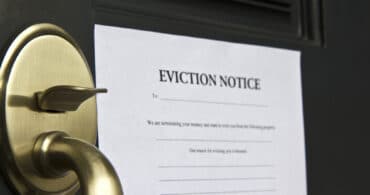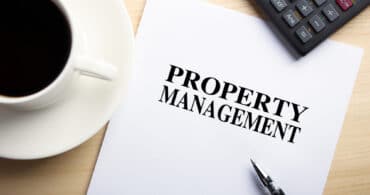Letting to Disabled Tenants: A Landlord’s Guide
Landlords must comply with the Equality Act 2010, and should be aware of their legal responsibilities regarding disabled tenants who may need alterations made or be provided with some form of assistance to allow them to live comfortably in the home they are renting. But just what should landlords be doing to accommodate disabled tenants and comply with the law?
The Equality Act 2010 covers the issue of disability discrimination. Landlords must comply, and should be aware of their legal responsibilities regarding disabled tenants who may need alterations made or be provided with some form of assistance to allow them to live comfortably in the home they are renting. A large proportion of rental properties in the UK are inaccessible to the disabled however. So just what should landlords be doing to accommodate them and comply with the law?
The Equalities and Human Rights Commission has said that 93 per cent of 8.5 million rental properties in the UK are not accessible to the disabled, noting that 365,000 disabled people were living in homes that did not suit their needs.
“Accommodation for disabled people in this country is not acceptable,” said David Isaac, chairman of the commission.
“The lack of accessible housing stops disabled people from being able to live independently.”
But what exactly are a landlord’s responsibilities when it comes to adapting a property to suit a disabled tenant’s needs, and can they refuse to let to a disabled tenant?
How to avoid a discrimination claim
Landlords cannot refuse to let their property to someone who is disabled. Even if your property doesn’t seem suitable for them, you cannot use that as a reason to turn them down.
If you are letting a property with communal facilities, then you cannot refuse to allow a disabled tenant to use any of those facilities on the grounds of their disability.
No tenant must ever be given less favourable treatment than an able-bodied tenant, and landlords must never refuse to undertake repairs or renovations that are required to make the property habitable. Neither must they charge a higher rent or deposit to disabled tenants, provide a less secure tenancy agreement than they would an able-bodied tenant, or evict someone due to disability or illness.
If you have a clause in your tenancy agreement that bans the keeping of pets, but you have a tenant who has or develops sight problems and requires a sight assistance dog, then it would be classed as unreasonable to enforce this clause under the circumstances. Generally, landlords will be required to allow guide or assistance dogs in their properties.
What adaptations does a landlord need to make to accommodate disabled tenants?
There are certain obligations on landlords to make adaptations to suit disabled tenants. However these do not include altering or removing anything that can be defined as a physical feature of the property. These might be, for example, any feature that forms part of the design or construction of the property, anything that forms part of the approach to or exit from the property, and any fixtures in or on the property.
Tasks for which landlords would not be obligated include moving a communal entrance for a block of flats or HMO, or relocating a paved drying area.
Any requests for adaptations must be put forward by the tenant in writing, and such request must be reasonable. What’s more, it is not always down to the landlord to cover the costs for any alterations. Help may be sought from a range of sources, such as grants or social services.
Landlords do have a responsibility to provide disabled tenants with ‘auxiliary aids and services’, designed to make it more straightforward for them to live in the property. Such aids and services only need to be provided if it would be difficult or impossible for the tenant to enjoy full use of the property without them.
Examples might include making alterations to furniture and furnishings; replacing door handles or taps that are tricky for a disabled person to use; providing signs and written documents in Braille; fitting wheelchair ramps, and adapting door entry systems or doorbells.
According to the Equality Act 2010 a person is classed has having a disability if they have a mental or physical impairment which has a substantial, long term effect on their ability to undertake day to day activities.
Thinking of renting to disabled tenants? Let homes2let take the burden of legal responsibility off your shoulders.
With such a pressing need for more accessible rental properties, and growing numbers of disabled tenants seeking good quality, comfortable housing, it makes sense for landlords to consider letting to disabled tenants.
Of course, this means ensuring compliance with the Equality Act. This responsibility however is something you can hand over to the team here at homes2let by making use of our exclusive property management service, with a difference.
Not only will we handle everything, from tenant sourcing and referencing and all the necessary legal and safety compliance requirements, to getting the property ready for the tenancy, we’ll also pay your rent in full every month, even when the property isn’t tenanted, courtesy of the homes2let guaranteed rent scheme.
Want to find out more? You are welcome to get in touch with our helpful team.
Related Insights

Evictions Paperwork Must Now Include Breathing Space Details
A new government scheme came into force on 4th May, providing anyone with a debt the legal right to protection from creditors, including tenants in rent arrears. The Debt Respite Scheme, otherwise known as the ‘Breathing Space’ arrangement, has been introduced to allow those in debt to find a solution to their financial issues. And now, in a recent move, the government has announced that details of the scheme must be included within paperwork when seeking to gain possession of a property.

Breathing Space: Debt Respite Scheme to Prevent Landlords From Chasing Unpaid Rent
From 4th of May 2021, a new government scheme will come into force that will give anyone with a problem debt a legal right to protection from creditors. This includes tenants who are in rent arrears with a debt owed to their landlords. The ‘Breathing Space’ arrangement, otherwise known as the Debt Respite Scheme, will allow debtors time to find a solution to their financial issues.

What is a Property Manager and how do they Support Landlords?
Thinking of starting a property rental business and wondering whether to employ the services of a property manager? Read on to learn precisely what’s involved in a property manager’s role, and how using a property management company could benefit you as a landlord in numerous ways.







